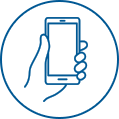
Lasik surgery has been around for nearly 25 years. Today, more than 10 million Americans have undergone Lasik surgery since it received FDA approval in 1999.
There have been many research studies on Lasik to answer important questions, including how successful LASIK is and if it wears off over time. Lasik is a safe procedure with a great success rate. It's also considered permanent vision correction.
However, there are a few things you should know about how long lasik lasts.
Lasik Basics
Lasik is a type of laser eye surgery. The laser is used to reshape the cornea, which corrects refractive errors, including nearsightedness, farsightedness, and astigmatism.
Lasik typically eliminates the need for glasses or contacts for vision correction.
Research shows that Lasik has a success rate between 96% and 98%, and only 3% of people experience serious side effects.
90% of patients achieve 20/20 vision or better after Lasik. This means it's an incredibly safe and effective procedure.
You'll see results within a few hours after surgery. After 24 to 48 hours, your eyes should be functioning at an optimal level. This means you can likely set your glasses or contacts aside.
We know that lasik is highly effective in the short term, but what about long-term results?
Is Lasik Permanent?
Yes, Lasik is permanent. The results of the procedure will remain with you throughout your lifetime. However, some patients do need a second surgery, usually a decade or more after the initial procedure.
Why is this? Your eyes continue to change over time. The initial vision problem was corrected with Lasik surgery. However, you can develop new vision problems down the road.
This doesn't mean that Lasik has "worn off." It simply means that your eyes have changed and you are experiencing new vision issues.
Whether or not you have vision problems after Lasik will depend on the severity of your initial condition, and whether it progresses after surgery. You can also develop a new condition that affects your vision after Lasik.
It is critical to have regular eye exams following your LASIK eye surgery in order to detect any new vision problems early on. This is important for patients who have a history of eye related problems or who are predisposed to certain eye conditions. Early detection and treatment of eye issues can prevent further vision deterioration and ensure the best possible outcomes.
Furthermore, adhering to proper post-operative care instructions and avoiding activities that can harm your eyes, such as rubbing or touching them, can help keep the procedure's results. Lasik can provide a long-term solution for many patients, allowing them to enjoy clear and crisp vision for years to come with proper care and monitoring.
How Common are Vision Problems After Lasik?
There are a few studies that give us clues as to how common vision issues after Lasik surgery are.
One study monitored people who had moderate to severe myopia, or nearsightedness. After 12 years, 87% of those with moderate myopia met the treatment goal. 66% of those with severe myopia met the goal.
The study goes on to explain that only patients who followed up regularly, including the 12 year follow-up, were included. Since patients who are happy with their vision are much less likely to attend these appointments, the regression rate is likely skewed.
Another study also looked at those with nearsightedness and astigmatism. They found that 52% of patients had 20/20 vision after 10 years. 35% of patients required another round of Lasik surgery.
Progression of Pre-existing Vision Problems
Both nearsightedness and farsightedness can reappear after Lasik surgery. Before Lasik, you likely had to increase the prescription in your glasses or contacts periodically because your vision continued to get worse over time.
This can occur after LASIK surgery as well. However, the procedure does give you much better vision than you would have had without LASIK eye surgery.
It's important to keep in mind that LASIK surgery doesn't prevent the natural aging of the eyes, and many people experience changes to their vision as they get older. This can include presbyopia, a condition that affects the eyes' ability to focus on close objects and is a normal part of the aging process.
While LASIK surgery can correct nearsightedness or farsightedness, it does not address presbyopia. However, there are other surgical and non-surgical options available to help manage this condition, such as monovision correction or multifocal contact lenses. Your eye doctor can help determine the best course of action to help you maintain clear and comfortable vision as you age.
Development of New Vision Problems
It's also possible to develop new vision problems after Lasik surgery. In this case, the condition is unrelated to the surgery or your previous condition.
Presbyopia is one condition that can appear after LASIK surgery. Presbyopia occurs in nearly everyone 40 or older, to one degree or another.
This occurs because the lens of your eye hardens over time. There's a muscle around your eye that allows the lens to relax when you look at things that are far away and constricts when you look at something close up.
When the lens hardens, it can't contract as well. The condition typically gets worse over time, affecting your near vision.
Cataracts are another vision problem that can occur after LASIK. It's important to note that Lasik has no effect on cataract development or prevention.
Cataracts occur when the lens of the eye becomes cloudy, which affects your vision. Over half of those 80 years or older have cataracts. It's also the leading cause of blindness in older adults.
Cataracts can be treated with surgery. Regular eye exams can catch the problem early, when it's easier to treat.
Can I Get LASIK Twice?
The majority of people who get LASIK remain happy with their vision. However, great vision doesn't always last forever. If you develop presbyopia, or your nearsightedness or farsightedness returns after LASIK surgery, you may be a candidate for a second LASIK eye surgery.
You'll need to get an evaluation from your ophthalmologist near you. They will check the condition of your eyes, including the thickness of your cornea, and determine if a second of procedure is needed.
Silk Vision LASIK Vision Center
If you are interested in LASIK eye surgery in Virginia, contact Silk Vision. At our Lasik Vision Center, we offer state-the-art Lasik procedures. Our highly skilled surgeons treat each patient with compassion as well as expertise. Furthermore, Silk Vision is a community partner, and they pay it forward by donating to charities such as cureblindness.org, so when you give yourself the gift of better vision, you also help someone else.











.png)
